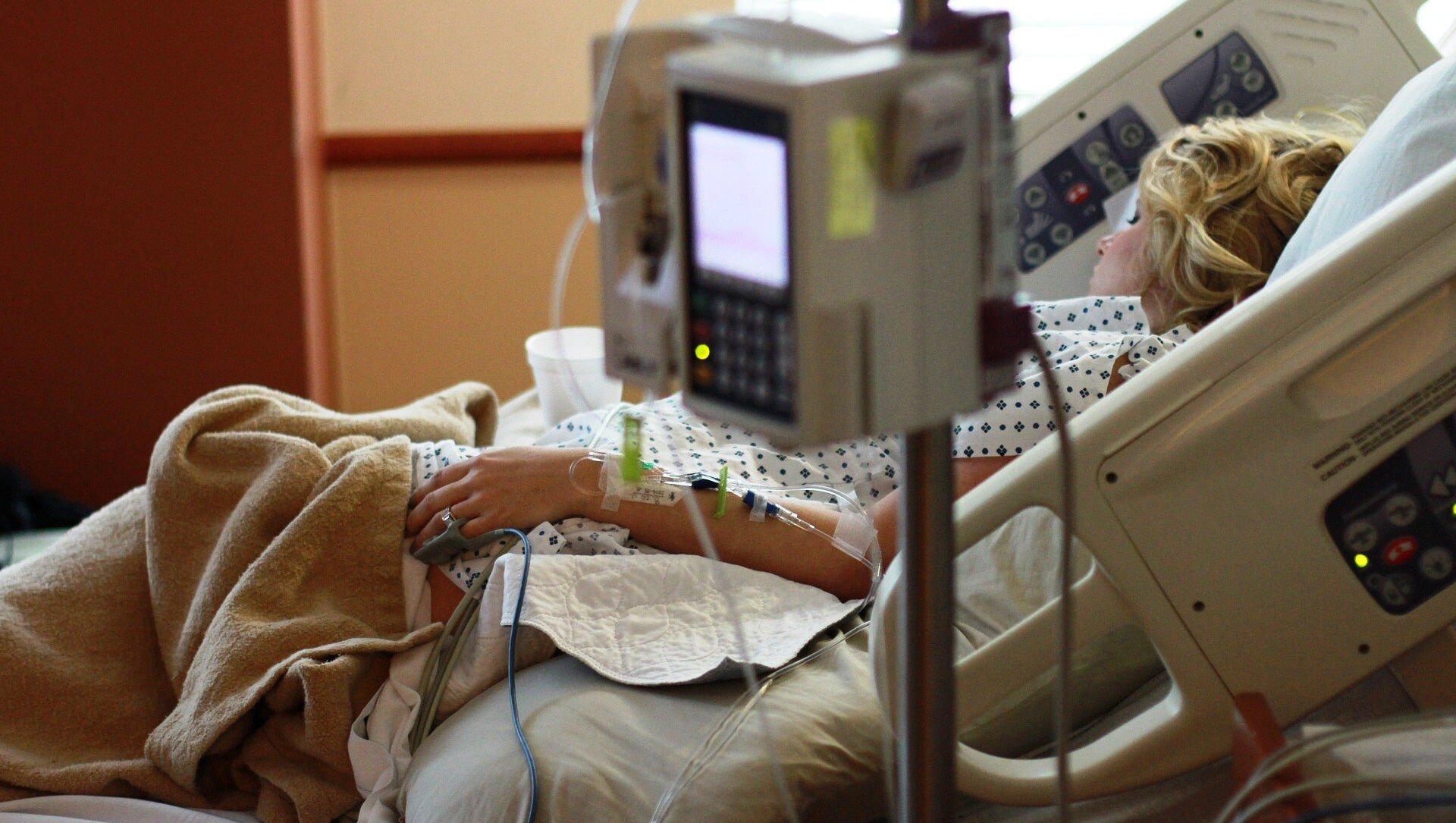Britons with learning disabilities have found themselves in limbo as healthcare workers were reportedly ordered not to resuscitate them if they contract COVID-19, according to the Royal Mencap Society (Mencap), a UK care watchdog.
Earlier, inappropriate "do not attempt cardiopulmonary resuscitation" (DNACPR) notices were issued for a number of care home residents, causing potentially avoidable deaths last year, as the Care Quality Commission revealed in December 2020. Citing January reports from people with learning disabilities, Mencap presumes that DNACPRs specifically targeted individuals with such conditions.
People With Learning Disabilities: Left Out in the Cold
The fact that DNACPR notices were put in the files of people with learning disabilities, even those who weren't too frail to benefit from cardiopulmonary resuscitation, is "a gross and shocking abuse of the human rights of people with learning disabilities", according to Professor Katrina Scior, director of the UCL Unit for Stigma Research (UCLUS).
Usually, DNACPR decisions are applied to people who are too feeble to benefit from the potentially life-saving procedure. Typically the option is discussed with the patient or their caretakers. However, amid raging pandemic in 2020 the notices were issued in some cases without the people's knowledge or consent, according to the Care Quality Commission. The public body is due to release conclusions of its investigation into "inappropriate" DNACPRs in the coming weeks.
"That even one single person with a learning disability should falsely receive such a notice is a sad indictment of the disdain in which some in our society and the health and care professions continue to hold people with learning disabilities", Scior says. "Such blatant discrimination is simply unacceptable at a time when the High Court is preparing to hear a landmark challenge to the UK’s abortion law which Heidi Crowter, the young woman with a learning disability who brought the case, argues discriminates against people with Down’s Syndrome by allowing abortion up to 38 weeks of pregnancy if the baby has Down’s Syndrome".
The reports that some people are still being told that they will not be resuscitated simply because they have a learning disability are ringing alarm bells, as "not all people with learning disabilities are able to speak up, or fight, or have someone who can fight on their behalf - and they shouldn't need to", stresses nurse academic Irene Tuffrey-Wijne, professor of intellectual disability and palliative care at Kingston University.
"There is quite rightly an outcry about both these shocking inequalities", she says. "It is frightening that without shouting, too many people with learning disabilities remain at risk of unnecessary and premature death".

The problem does not end here as many Brits with mild or moderate learning disabilities are not prioritised to receive a COVID vaccine although they are more than six times as likely to die from the virus, according to Public Health England (PHE).
"We are in the new millennium and people with learning disabilities need to be treated fairly," say Celia and Adrian Brown, a married couple with learning disabilities from London and Expert Advisers on the NIHR-funded STORM study, led by Professor Scior. "The world won’t take too kindly to this sort of thing happening."
The Browns had suffered from COVID-19 last year and have been very upset by the treatment they and other people with learning disabilities received.
While the Joint Committee on Vaccination and Immunisation (JCVI) have included adults with Down’s syndrome and those with severe and profound disabilities to get the vaccine in priority group four and six, respectively, many other Brits with learning disabilities have yet to get a life-saving anti-COVID jab.
"It’s encouraging that the Government has reached the milestone of vaccinating the top 4 priority groups," says Mencap CEO @Edelharris.
— Mencap (@mencap_charity) February 15, 2021
"But too many people with a #LearningDisability are still waiting, despite being at a high risk of dying from the virus." (1/5)
The government's decision to single out a few subgroups of people with learning disabilities while leaving many others out in the cold makes little if any sense, argues Dr. David Charnock, assistant professor in Learning Disability Nursing at the University of Nottingham. He insists that the only way to protect people with learning disabilities and prevent avoidable deaths from COVID-19 is "to place all in phase 1 of the vaccine roll out regardless of their age, severity of learning disability or genetic syndrome".
"It is shocking that despite clear evidence that people with learning disabilities are much more likely to die of COVID-19, they are not being adequately and consistently prioritised for the protection of a vaccine," echoes Irene Tuffrey-Wijne.
Recently, Mencap has called upon the government to include all Britons with the condition "in at least priority group 6, regardless of the severity of their needs".
COVID-19 became the main cause of death for 65% of people with learning disabilities in five weeks since the beginning of the third lockdown, according to the UK National Health Service's latest figures. To complicate matters further, those suffering from learning disabilities have a much lower life expectancy than the general population - 27 years lower for women and 22 years lower for men, Mencap highlights.

'It's Hard to Understand Why Gov't Fails to Protect Those Vulnerable'
"People with learning disabilities, their families and supporters have been campaigning for decades for them to be afforded an ordinary life with the same rights as the general population," says Dr. David Charnock. "Since the 1960s, gradual progress has been made to include people who have learning disabilities in mainstream society and not to ignore or segregate them. I do not understand, nor can I offer an explanation for the government’s inability to plan to protect this vulnerable group. Nor can I explain why they failed to address DNACPR notices once these had been called out by CQC."
Successive governments have been made aware over decades of evidence that suggests that people with a learning disability are at greater risk of additional health problems, the professor elaborates. For example, good evidence exists that people who have a learning disability are more likely to experience heart and circulatory disorders and respiratory disorders, according to him.
Absolutely devastating.
— Sally Holden (@sareas24) February 15, 2021
There are 1,200 avoidable deaths of people with a learning disability every year.
"Everything needs to be done to make sure we never see a case like this again." says @mencap_charity https://t.co/eIjlph0yCt
Thus, Confidential Inquiry into Premature Deaths of people with Learning Disabilities (CIPOLD) has found that people with a learning disability were three times more likely to die from a cause that was avoidable. To improve the quality of health of this vulnerable group the NHS England launched the Learning Disability Mortality Review (LeDeR) to examine the avoidable death cases to find out why people with learning disabilities die much earlier than average.
"Again and again, we see that timely and appropriate healthcare for people with learning disabilities cannot be taken for granted", notes Tuffrey-Wijne. "Too many people with learning disabilities die of conditions that are treatable. The statistics that show this are not new, but it seems that lessons are learnt too slowly, or not at all."
While people with learning disabilities do not necessarily require special arrangements regarding their care, they may require adjustments to existing care delivery to ensure that they have the same chance of a positive outcome as others, according to Charnock.
"It is most important that those caring for people who have a learning disability do not allow misconceptions about them and their lives overshadow any symptoms of disease that they may present," the professor underscores. "Essentially health and social care staff should be mindful of a person’s learning disability but must not allow any assumptions about value and worth to influence decisions about care and treatments. There should never be a case where treatment is denied solely on the grounds that a person has a learning disability."




